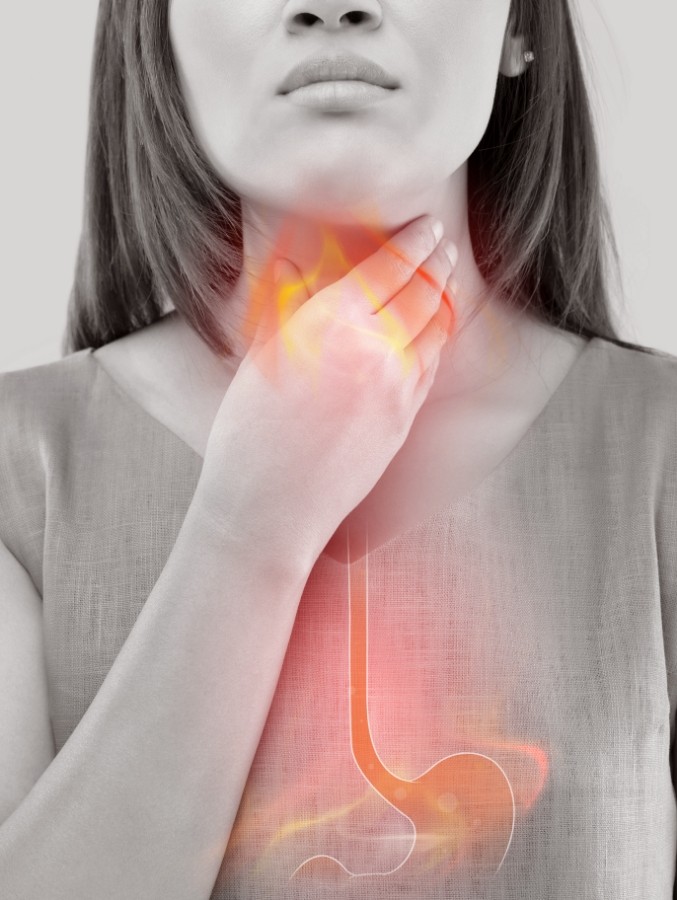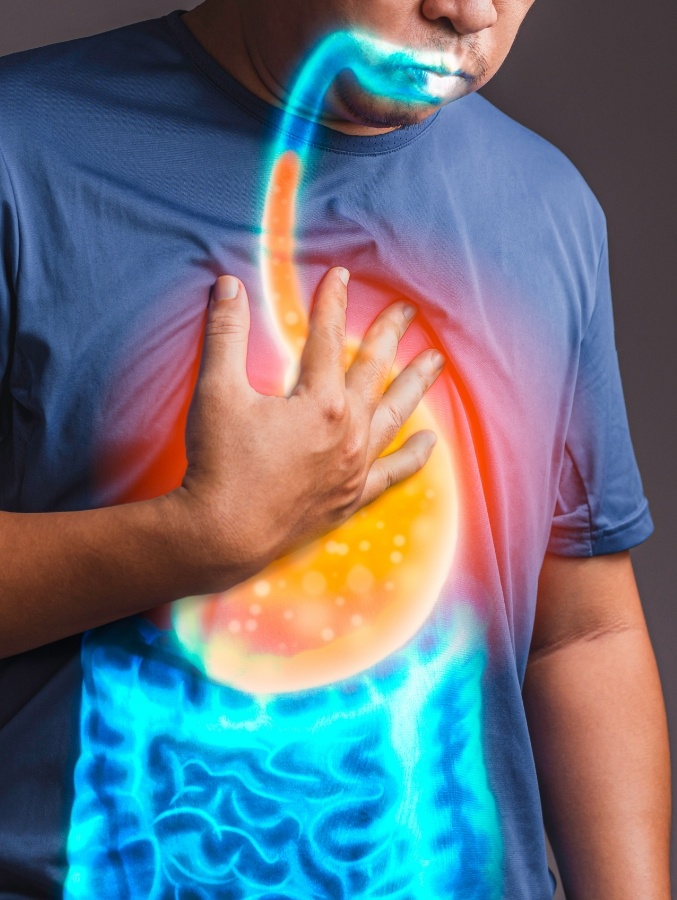Acid Reflux & GERD – Cary, NC
Protect Your Smile from Damaging Stomach Acids
Have you ever experienced a burning sensation in your chest (i.e., heartburn)? Do you struggle with bad breath and tooth sensitivity even though you take good care of your teeth? The problem may not originate inside your mouth but in your lower esophagus. Acid reflux, which is estimated to affect 50 million Americans, can be not only uncomfortable but also quite damaging to both your esophagus and your smile. Fortunately, Dr. Koch and the rest of our dental team can help identify acid reflux in Cary and make sure your teeth stay strong and healthy.
Why Choose Darren G. Koch, DDS, PA for Acid Reflux & GERD Treatment?
- Dental Team That Helps You Feel at Home
- Dentist That Respects Your Time
- Emphasis on Quality Dental Care
What Is Acid Reflux?

Acid reflux occurs when the muscles of the lower esophagus relax and allow stomach acids to flow upwards into the esophagus and even the mouth. These stomach acids can cause irritation and inflammation of the esophagus while negatively impacting your oral health.
Gastroesophageal reflux disease (GERD) is the chronic, more severe form of acid reflux that requires treatment to avoid additional health complications. Children and adults who have frequent heartburn two or more times per week and suffer from other related symptoms may be diagnosed with GERD.
How Does Acid Reflux Impact Your Oral Health?

You may have heard that you shouldn’t drink too much orange juice because acidic substances can erode and weaken your tooth enamel. If the acids in your stomach reach your mouth, they provide a hostile environment for your teeth. In fact, the strong stomach acids over time make teeth more susceptible to sensitivity, decay, chipping, discoloration, and cracking.
What Are the Signs and Symptoms of Acid Reflux?

Inside the mouth, acid reflux can manifest in several ways, such as a burning sensation or bad breath. Other symptoms of this condition include the following:
- Heartburn
- Stomachache and pain on awakening
- Regurgitation of food or sour liquid
- Chronic coughing, wheezing, and chest pain
- Belching, nausea, and vomiting
- Sinus infections and post-nasal drip
- Hoarseness, throat-clearing, sore throat
- Asthma and COPD
- Difficulty swallowing
- Snoring and sleep apnea
If you suspect that you could have acid reflux, you need to visit with a physician for proper testing and diagnosis.
How Can You Protect Your Smile from Acid Reflux?

Sometimes acid reflux patients can go years before realizing that they have this condition. By that point, tooth erosion may have already started. That’s why it’s important to visit our dental office regularly for an evaluation of your tooth enamel. Here are some other useful tips for stopping damage to your smile:
- Use sensitivity toothpaste such as Sensodyne Pronamel or Colgate Sensitive.
- Rinse your mouth with water following acid reflux episodes.
- Do not brush your teeth for 60 minutes after consuming acidic foods or drinks.
- Receive fluoride treatments during your checkup and cleaning appointments to strengthen your teeth.
- Wear a dentist-prescribed mouthguard at night to prevent acid from damaging your teeth.
- Avoid over-the-counter antacids that have a high sugar content, especially at night.
Other small changes to your lifestyle that can have a big impact include the following:
- Avoid foods such as chocolate, spicy/greasy foods, citrus, and tomato-based foods.
- Refrain from eating several hours before bed or lying down 2 to 3 hours after eating.
- Lose weight if you are overweight or obese. Avoid tight clothing.
- Avoid beverages such as alcohol, coffee, and carbonated soft drinks.
- Quit smoking.






